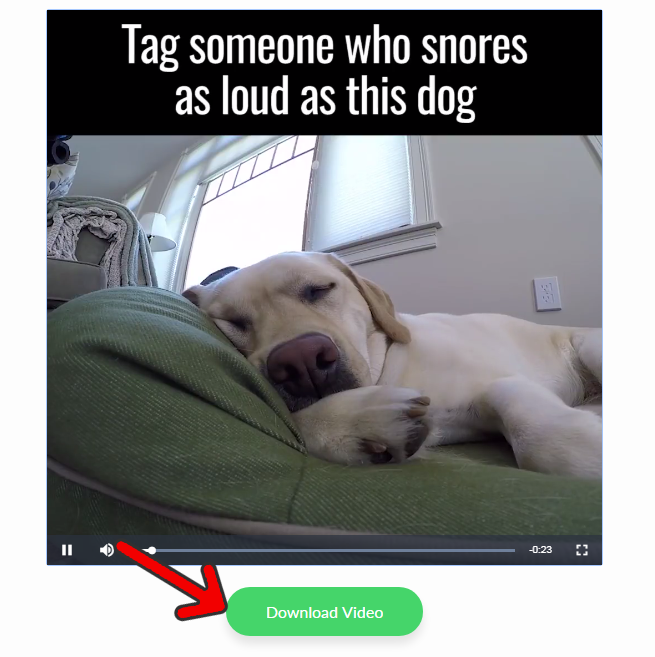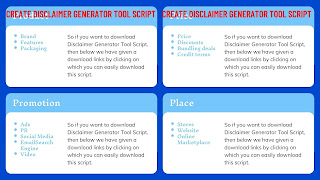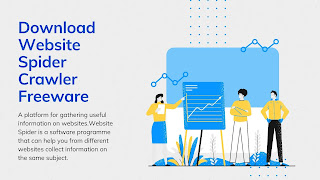SEO for Beginner How to Optimize Your site for Search
What is SEO?
Optimizing the search engine is precisely the way it sounsearch ds:order to optimize the content of your website for search engines.That way, Google (and other engines) can easily index your content, categories each of your pages based on the information they contain, and then serve those pages to people who are searching the Internet for that information.
Why You Need to Optimize Your Website for SEO
By following some simple tweaks to the content of your website, users who search online are more likely to find you, meaning increased traffic to your website.Backlinko's one case study shows an incredible 385 percent boost in organic traffic resulting from SEO efforts.
According to Search Engine Journal, 70-80% of users ignore the paid ads, focusing instead on organic search results. SEO is one of the cheapest and easiest ways to drive more traffic to your website. Frankly, by not optimizing for search, you’re leaving visitors on the table.
To develop a technical seo strategy, it helps to first understand the basics of how search engines work.
How to Search Engines Work
The main search engine process is threefold: crawling, indexing, and querying.Let's describe each of them.
Crawling: The search engine is running a software programme named "spider" to locate content on the web
Indexing: The search engine analyzes the content it finds to determine what it’s about, then indexes it–or organizes the content–so that it’s quickly retrieved when the next step occurs.
Querying: When you conduct a search online, the search engine fetches a list of results for you to consider. These search results appear on a SERP (Search Engine Results Page). As Google puts it, “…our algorithms look up your search terms in the index to find the appropriate pages.”
What is the algorithm?
Google's algorithm is a programme that analyses a set of distinctive features of each web page that it indexes.This helps Google to display the most relevant pages in response to an user request.
Very few people know the actual details of Google’s algorithm. That’s because Google keeps its exact algorithm secret, and it updates it frequently, which keeps the SEO community on its toes. That said, by studying how content performs, analysts have arrived at some conclusions as to how you can make your content more attractive to Google’s algorithm.
How Do I Attract Google’s Attention?
This really is the core of why we're here: to learn how to get Google's attention to SEO in order to bring about improvements and increase traffic to your search site. So what's Google looking for, exactly?
Next, let 's talk aboutjust what Google isn't searching for.In the past, several SEO experts have been interested in gaming the system in hopes of getting top positioning on SERPs to attract users.
They churned out massive amounts of low-quality, “thin” (300 words or less) content pages on a variety of topics. They would pack these pages with keywords, which are words that appear in popular search terms. At first, this scheme worked, until Google caught on and updated its algorithm to foil this strategy.
These days, the most important thing to understand about SEO is that your content must be high-quality, informative, and satisfying to a user. In essence, if your content impresses a human, then it will probably impress Google.
If Google trusts your page enough to serve you up as a top result to a query, then that page better delivers a great piece of content to the viewer. If a high percentage of users leave your page without clicking through to another, resulting in a high bounce rate, Google will penalize you for it.
Here are two key characteristics of content that we know Google favors.
1. Length: If you’re gunning for a piece of content to appear on a top search engine results page, aim for about 2,500 words for prized content pieces. Why? Content that is well-researched and covers a topic in depth impresses Google. In a survey of 160,000 pages, serpIQ determined that the top SERP results were reserved for web pages that were longer, with a decline in search performance that generally correlated with declining length of content.
2. Freshness: To stay on Google’s good side, keep your website updated with fresh content on a regular basis. When Google’s spider crawls and indexes your site, they give you a freshness score, which factors into their algorithm. If you don’t update your site at least weekly, it will start to appear stale to Google, and therefore less appealing.
How to Use focus keywords for SEO
See how we spoke about content quality and duration before we explained the use of keywords? It's not because it doesn't matter about keywords, because they are.But because of the algorithm modifications were ferred to, keywords are no longer efficient.You can't help all your keywords in the world if you don't have great content.(And in truth, in Google's type, you'll be harmed by too many words – or "keyword stuffing").
That said, keywords are still an important element to incorporate into your SEO strategy. Keywords can help determine what you’re going to write about so that you have the best chance of attracting traffic. How do you know which keywords are going to bring visitors to your site?
This brings us to the question: What’s a keyword people search? We explained it briefly above, but in a little more depth, a keyword is a word or a short phrase that shows up in popular search queries. By doing keyword research, you discover which keywords have the potential to drive the most traffic to your site. You use keywords by article writing that focuses on topics that cover those keywords, and you make sure to include those keywords in your content.
Google’s Keyword Planner is the SEO professional’s best tool when it comes to knowing how to write content that’s relevant and is bound to get organic search traffic. In a nutshell, you can use the keyword planner to discover what search terms are popular in your niche. If you want a detailed look at how to use the planner, check out Backlinko’s guide.
What Are Title Tags?
In short, the title of your post,blog or article is a page title tag.Your titles page tag will be shown on SERPs, on the top of your browsing page and on social media when you post your article.A succinct and exact summary of the content of the page should be reflected in your title tag, which is important for both the user experience and the SEO.On the SERP this is how you look like your title tag (in this article, we have used the name 'SEO for beginners: how to enhance your search content' as an example)
When it comes to optimizing title tags for your website, you’ll want to follow best practices to have a positive impact on SEO. Here are some recommendations for optimizing title tags for search:
Keep your title tag between 50-60 characters. (The above example is 58 characters.) This prevents a too-long title from getting cut off in search results.
Your title must accurately describe the content on the page.
Put your keywords toward the beginning of the title tag.
It’s also important to remember to never reuse the same title tag for multiple pages on your website. Duplicate content on your site will get you penalized by Google. If you have two pages that are similar in content, either combine them into one page or come up with ways to differentiate and vary the content, which will include the title tags.
What is a Meta Description?
Before we define a meta description, it helps to define a snippet. A snippet is a description that Google displays on a SERP beneath your title tag. The snippet is a brief summary of your page so users can get a preview of what the page contains before they click.
A meta description is also a brief summary or description of your page’s content, but it’s composed by you. You can install an SEO plugin within your CMS, such as Yoast, that allows you to offer Google the content of the snippet. If Google decides your description is relevant to a user’s query, your meta description shows up in SERPs as a snippet. If you don’t compose your own meta description, then Google will display its own snippet from the content on your page.
When you use a keyword in your meta description, search engines will highlight it in the snippet if a user has performed a query that includes that keyword. These highlighted keywords can draw the attention of the search engine user, which can result in a higher click-through rate to your content. Notice the keywords “sharing buttons” and “social” highlighted in the snippet below:
You can easily add title tags and meta descriptions to your content with the All In One SEO WordPress plugin. Now that you’ve got some basics down, we have one last topic to cover: links.
How can I useSEO to support links?
SEO-based links on your website can be very useful.You can include two types of links in your web content: internal links and external links.One page of your website is linked to another with an internal link.For instance, the "contact us" page of your homepage can be connected.The source domain and the target domain are identical when an internal link is established.Internal links allow users to conveniently and efficiently access your web.
An external link is a link in your content that directs the user to a different, outside domain. Done right, links to external content should show that your content is well-researched from reputable sources, which Google likes to see. Although links can significantly help your SEO ranking, there are some things that can harm it as well. Be careful to avoid mistakes with your hyperlinks. Here are some factors to consider when using links in your content:
Links from sites related to your product or topic are usually more valuable than links on unrelated sites because related sites provide more topical relevance.
The link’s text–commonly referred to as ‘anchor text’–matters, but not as much as it used to. Overly optimizing your anchor text can actually get you penalized by Google! In the past, SEO experts thought it was best to stuff keywords into anchor text. Now we know the best method is to simply write naturally and link accordingly, without trying to game the system.
The number of links included on a page matters in terms of SEO. You want to post enough links, but you also don’t want to post too many links. When a page links to multiple web pages, Google divides the value of the links by the number of links on the page. This means that the value of one link among many is diluted, compared to the value of a single link on a page without many others. So if you have important content you want to call to Google’s attention–be it your own internal link, or a valuable outside resource–be careful not to water down that value by linking indiscriminately.
Now that you’ve got a solid understanding of the basic ways SEO can work for you (and against you, if used incorrectly), you can employ these strategies to create superior content. Plus, you’ll also increase traffic to your website from search. This means that new users who are searching topics that relate to you will be able to better find you among the sea of content creators on the Internet.










